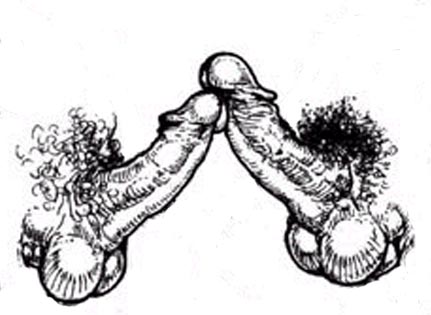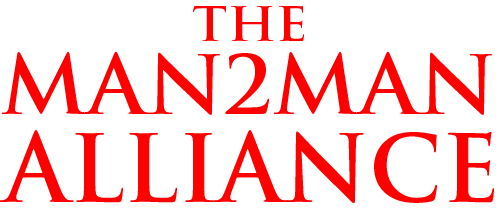





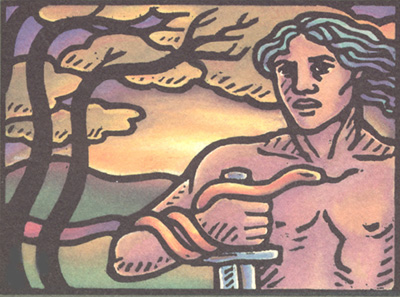


his valour plain to see
5-7-2007
Let's start, as we did in sweat the sacrament of naked valour, with Statius.
We're now in Book VI of Statius' Thebaid, his Roman retelling of the Greek epic known as the Thebais, or Seven Against Thebes;
and the Argive army, on its way to attack Thebes, has inadvertently and at some remove brought about the death of a royal child -- an infant.
Specifically, while the child's nurse is relating her life story to the Argive leaders, she neglects to watch the toddler, who is killed by a monstrous snake.
In order to expiate their sin, a sin of omission through which a child has died, the Argive leaders decide to inaugurate a religious-athletic contest, a Game, which will join the already established Games -- Pythian, Isthmean, and Olympic --
huge religious-athletic festivals which unite all Greeks.
Because the Argives are in Nemea, these new games will be known as the Nemean Games;
and here's the first thing Statius says about them:
Rumour with steps wide-wandering had ranged
"a sacrament ... games in which their martial valour might be kindled and foretaste the sweat of war"
What he says is reminiscent of what we heard in Book IV, during the marshalling of the Argive forces:
[There are warriors from] steep Taygetus
So once again the words sacrament, sweat, valour, martial, naked, strength, and war are joined together.
Not to mention death and glorious.
In Book IV, Statius says of the Laconians that Hermes
Himself had reared them in the dusty ring
Now, in Book VI, Statius says the Greeks plan a sacrament for the child's sepulchre,
With games in which their martial valour might
So, these are to be games in which Warrior-athletes will "flex their fine naked strength in rivalry."
Naked strength.
Naked rivalry.
Through the Greek cities of a sacrament
The Agives planned for that new sepulchre,
With games in which their martial valour might
Be kindled and foretaste the sweat of war.
And hardy squadrons from Eurotas where
The white swans breed. The god of Arcady
Himself had reared them in the dusty ring
And trained them in the ways of angry war
And naked valour; hence their high resolve
And sweat the sacrament of glorious death.
And trained them in the ways of angry war
And naked valour; hence their high resolve
And sweat the sacrament of glorious death.
Be kindled and foretaste the sweat of war.
...
[Athletic contests in which "peerless kings and mighty names" ... will]
Flex their fine naked strength in rivalry.

What are we to make of this?
The first part of it is simple.
For the Greeks, and to a lesser extent the Romans, there was a clear connection between athletics and war.
"They made sport training for war and war training for sport," said Philostratos of the Greeks, and that was so.
Which is why Statius says, games -- athletic competitions -- kindle martial valour and foretaste the sweat of war.
And that's the significance of the lessons Hermes taught the Laconians in the "dusty ring" of the palestra or fight school, where he
... trained them in the ways of angry war
And naked valour; hence their high resolve
And sweat the sacrament of glorious death.
So there's a connection between the naked valour of the fight school and of the agon -- the athletic contest itself -- and of angry war.
That part is easy.
But then we're still left with this phrase:
"sweat the sacrament of glorious death."
In our culture, after all, we wouldn't ordinarily connect sweat with a sacrament -- a holy rite.
But Statius does.
To Statius sweat -- at least the sweat of Warriors -- is neither dirty nor infra dignitas -- beneath worth.
Rather, it's worthy and it's sacred.
Because it's an emanation of aggressive maleness and of male aggression, and as such partakes of Male Virtue.
Man is sacred, Manliness is sacred, Manly Virtue is sacred, and therefore sweat, a manifestation of Manly Virtue which is Valour which is Fighting Spirit -- is sacred too.
We get a further clue to what he's talking about a few lines later.
There are just five events in these new Nemean games.
There's a chariot race.
Each chariot consists of *one* driver and a team of horses.
As usual among the Greeks, the contest is ONE MAN's strenuous physical effort to overcome another.
It's one on one.
Then there's a foot race.
Discus throw.
Boxing; and
Wrestling.
We've already discussed the boxing and wrestling matches, and the unabashedly homoerotic imagery in Statius' account of both, in the first Statius message thread.
But it's in his account of the preliminary to the foot race, that we begin to get a really clear picture of what Statius and his audience believed.
A young man, a youth really, steps forward to compete in the race.
His name is Parthenopaeus, and, says Statius, he strips preparatory to running:
[Parthenopaeus] loosed
The clasp of twisted gold that held his cloak.
His body shone, the whole joy of his limbs
Displayed, his splendid shoulders, chest as fine
As beardless cheeks, and valour plain to see.
Now, we've already been told by Statius that the games are conducted in the nude:
The Warrior-athletes "flex their fine naked strength in rivalry"
Which means, that once the young athlete has loosed his cloak in order to run the race, what the assembled Warriors see is his nude body:
His body shone, the whole joy of his limbs
Displayed, his splendid shoulders, chest as fine
As beardless cheeks, and valour plain to see.
So: his body shines, and the other Men can see his shoulders, his chest as smooth as his beardless face, his limbs, and his *valour* -- plain to see.
What Statius means is unmistakeable:
The young man's "valour," which is plain to see, are his genitals.
Our English word VALOUR is the Latin word VIRTUS.
And as we've seen, Virtus derives from Vir = Man; and Virilis = Manliness.
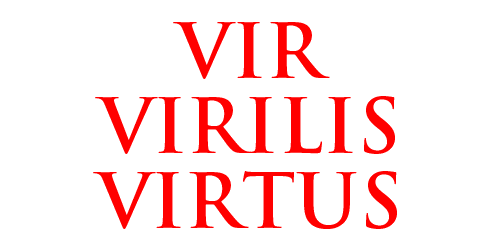
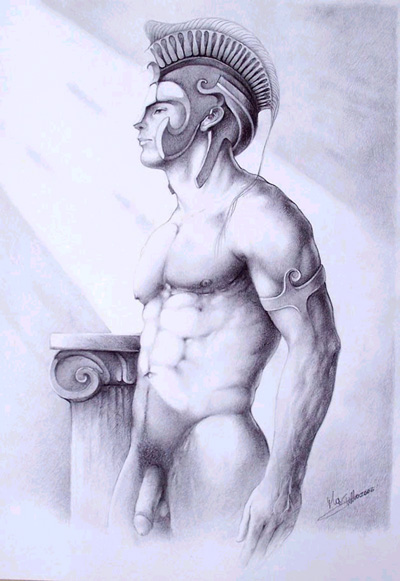
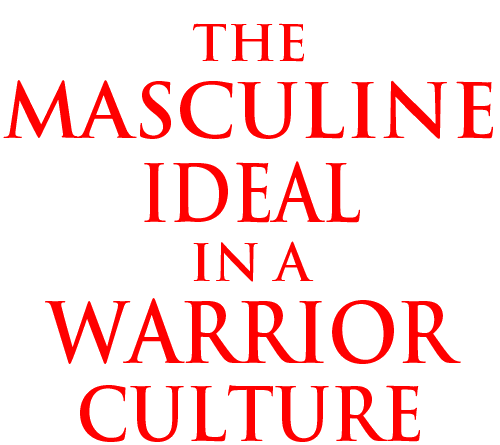
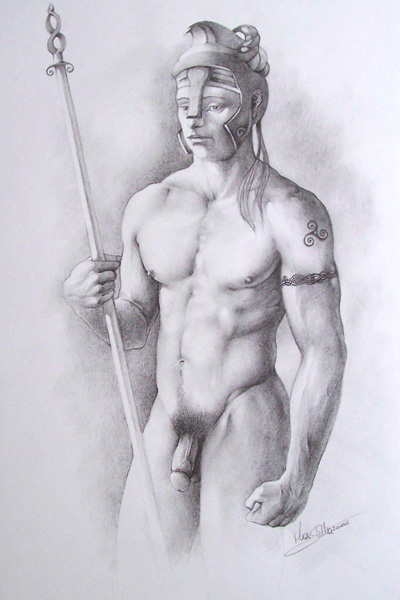

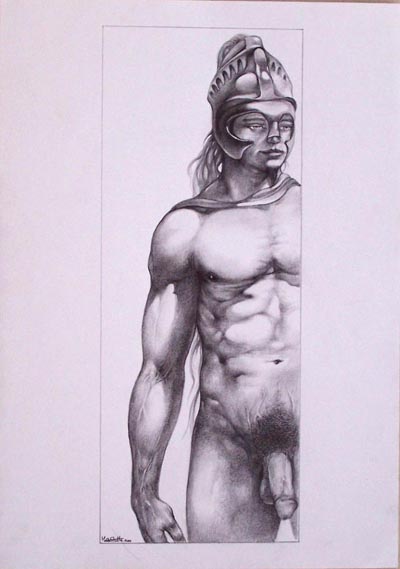
Virtus then has many meanings:
virtus : manliness, excellence, character, worth, courage.
virtus : valor, prowess, moral virtue, virtuousness, manhood, power.
So: Statius is saying that the young athlete's genitals, his MANHOOD, is also his Valour, his prowess, his power, his moral virtue, his manliness, his excellence, his character, his courage, his worth.
Wow.
Think about what that means.
It means that in the old Greco-Roman Warrior order, Man and Manhood are inseparable.
You can't divorce one from the other.
And that Moral Virtue is to be found, as is Valour, in Manhood.
Of course, that means that Manhood must be used for Virtuous ends.
No way around that.
It cannot be used in a way which sullies it -- dirties it -- denigrates it.
Virtus = Virtue = Valour = Manhood.
But only if it is indeed Virtuous -- WORTHY OF A MAN.
So that a Roman writer like Statius, who would have declaimed his work to an audience, can make an unashamed pun on Manhood and Valour through the word Virtus -- moral virtue -- itself.
Virtus.
When Parthenopaeus stands naked before his fellow Warrior athletes, what is plain to see is his Valour in both senses -- his courage and bravery, his fighting spirit, his suiting manly pride; and his Manhood.
Both are on display: his valour -- virtus -- plain to see.
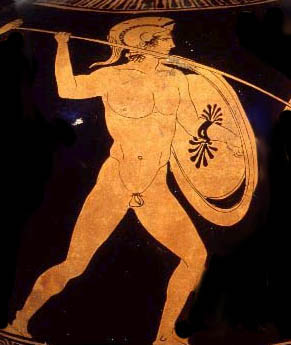
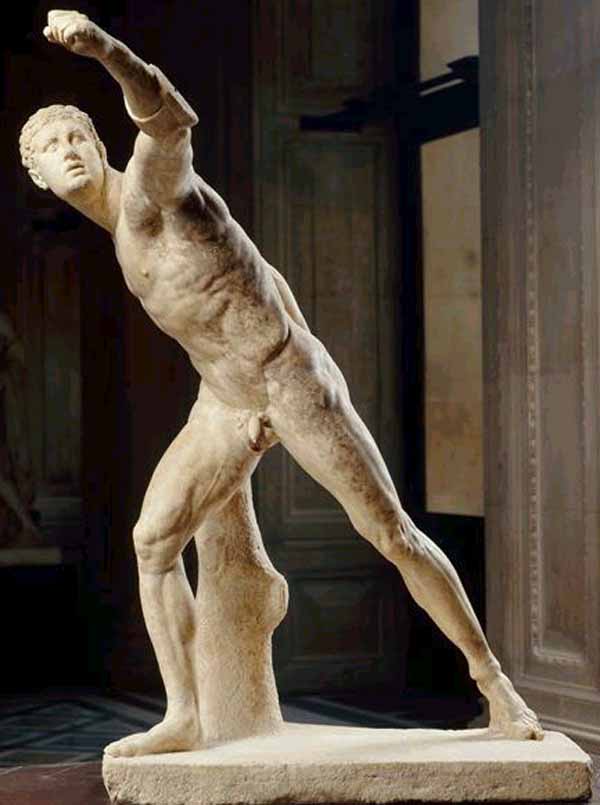
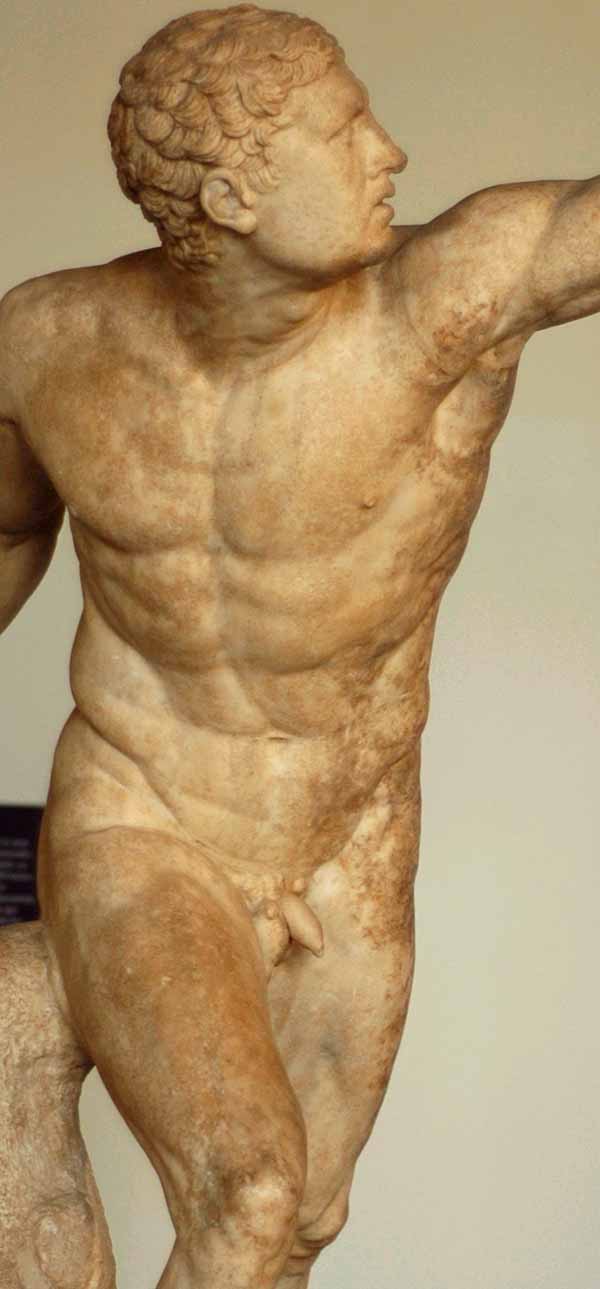
That's quite a statement of belief in Man and Manliness.
Now, there's another respect in which, to the Romans, Manhood is virtuous, and that's in its lifegiving aspect.
Remember that Danielou, the French student of Hinduism, speaks of "Phallus: Sacred Symbol of Man's Creative Power."
For the Romans, that life-giving power of the Phallus is numinous -- it's an immanent power, one which comes from within.
There are two Latin words which give us a sense of this:
"Genitalis," which means fruitful.
And "genius," which according to the great mythographer and student of religion Joseph Campbell, was "the procreating power of each male."
One of the online Latin dictionaries defines genius as "the superior or divine nature which is innate in everything, the spiritual part, spirit."
But Campbell says that "genius" is specific to the male's procreative ability, just as "juno" is specific to the female's conceiving and bearing power.
Both genius and juno are, again, numinous, innate, within.
"Numinous" derives from the Latin word Numa, for which our culture has no direct equivalent.
But many -- if not all -- warrior cultures do.
It's found in Shinto as kami, and in Alquonquian as manitou, Melanesian mana, Dakotan wakon.
And this echoes something Frances said about the Sioux: "Their world was completely imbued with spirit."
Again, numa -- or kami or manitou or mana or wakon -- is a spiritual power which resides within the object or being.
Which means, in my view, that for the Romans, genius would have resided in the male genitals -- in Manhood.
Which is another reason that Manhood possesses Virtus -- VALOUR.
Here's a Roman fresco -- a wall painting -- from Pompei, I believe, which is now in the Metropolitan Museum of Art in NYC:
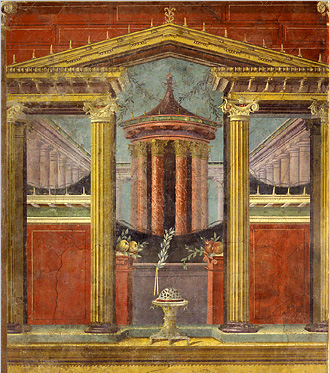
At first glance, you may not realize what it is.
But it's a Phallic Temple:
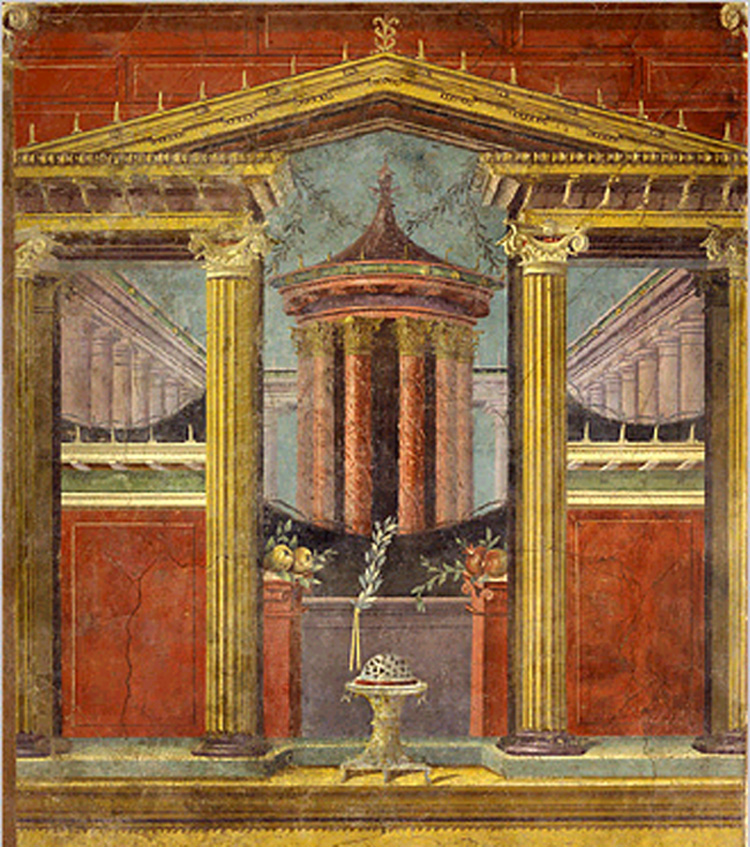
And everywhere you look there are Phalluses.
Now, I don't know how visible this will be to everyone, because although I've blown-up the image, different computers will display it differently.
But the Phalluses are everywhere.
If we start at the top, we see the Caduceus -- the intertwined snakes -- at the apex of the roof, and then rows of Phalluses descending on either side of the pediment.
Then there are more Phalluses on the lower part of the pediment, just above the heads of the ionic columns.
And then there's the little circular temple in the middle of the composition -- which is topped with a Phallus;
And then has Phalluses all around its roof as well.
And then there are more Phalluses on the lower level.

So this is a Roman Phallic Temple, a temple to the male procreative power which resides in the Phallus, and to the fruitfulness -- life-giving force -- of the Phallus as well.
Now, what about the word Sacrament?
If there's a Phallic Temple, can there be a Phallic Sacrament?
For us, a sacrament is a religious rite.
For example, I've referred to Frot as sacred, as a holy sacrament.
What's interesting is that when we look at the etymology of the word, it turns out that Sacrament has a MILITARY and WARRIOR origin:
This is from an online Latin dictionary -- I've abridged it, but you can look it up for yourself, here:
Etymology of sacramentum
sa_cramentum , i, n. [sacro] .
I. In good class. Lat., a jurid. and milit. t. t.
A. Jurid. t. t., the sum which the two parties to a suit at first deposited, but afterwards became bound for, with the tresviri capitales; so called because the sum deposited by the losing party was used for religious purposes, esp. for the sacra publica; ...
B. Milit. t. t. (cf. infra, 2, the passage from Cic. Off. 1, 11, 36),
orig. the preliminary engagement entered into by newly-enlisted troops (this was followed by the proper military oath, jusjurandum, which was at first voluntary, but, after the second Punic war, was demanded by the military tribune): ...Hence, since that time,
2. For jusjurandum, the military oath of allegiance (very freq. and class.):
milites Domitianos sacramentum apud se dicere jubet, to take the oath of allegiance,b. Transf., in gen., an oath, a solemn obligation or engagement (mostly post-Aug.)
II. In eccl. and late Lat., something to be kept sacred.
1. A secret: sacramentum regis abscondere, Vulg. Tob. 12, 7
2. The gospel revelation
3. A mystery: sacramentum stellarum, Vulg. Apoc. 1, 20
4. A sacrament
5. The office of the ministry: Athanasium episcopum... coctus in unum quaesitus (synodus ut appellant) removit a sacramento quod obtinebat, Amm. 15, 7, 7 .
So, from having originally been a sum forefeit for a religious purpose, it became a military oath -- a sacra mentum -- a sacred word.
Such as swearing, as did the Greek hoplites facing the Persians at Platea, that 'I shall fight to the death; I shall put freedom before life.'
Such as pledging, as the Founding Fathers did, their lives, their fortunes, and their sacred honor.
And from there, says the dictionary, it became, post-Augustan, which is when Statius was writing, "a solemn obligation or engagement."
Now, I have no question that our translator, A. D. Melville, is using the word sacrament in its late Latin/modern-day religious sense as well;
but there can be NO escaping the military root of the term sacrament:
It is a holy oath, sworn by warriors, an oath of allegiance, to keep a solemn OBLIGATION.
A sacrament then becomes both a religious celebration and a Warrior's Duty.
The idea of Frot as a sacrament then is connected to the idea of Frot as a martial oath of allegiance, as that which binds two warriors -- phallus2phallus, manhood2manhood, valour2valour, virtue2virtue
MAN2MAN.
But in the Greek view, remember, before there was virtue2virtue, there was virtue against virtue.
Before Greek men courted, they wrestled.
The contest preceded the courtship.
ManFight precedes ManLove.

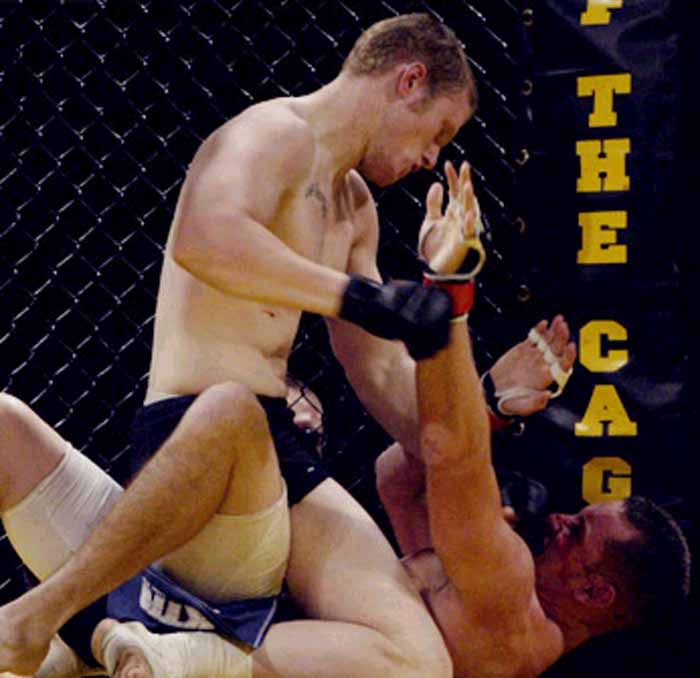
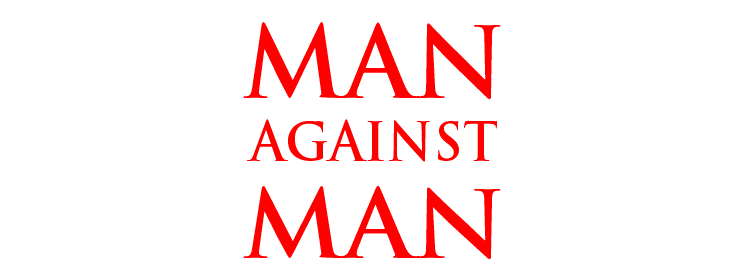
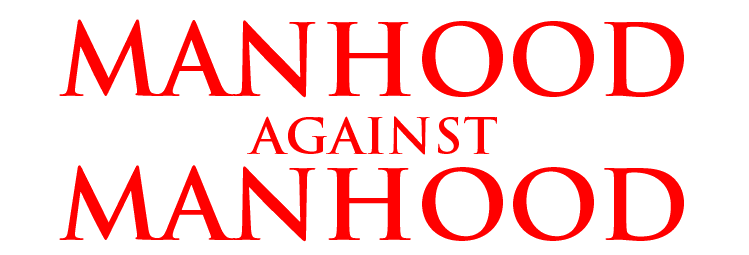

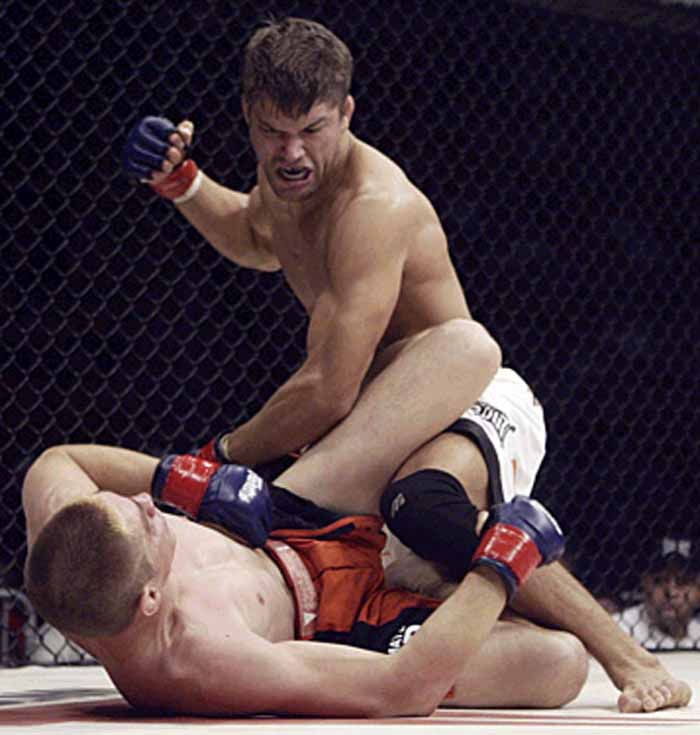






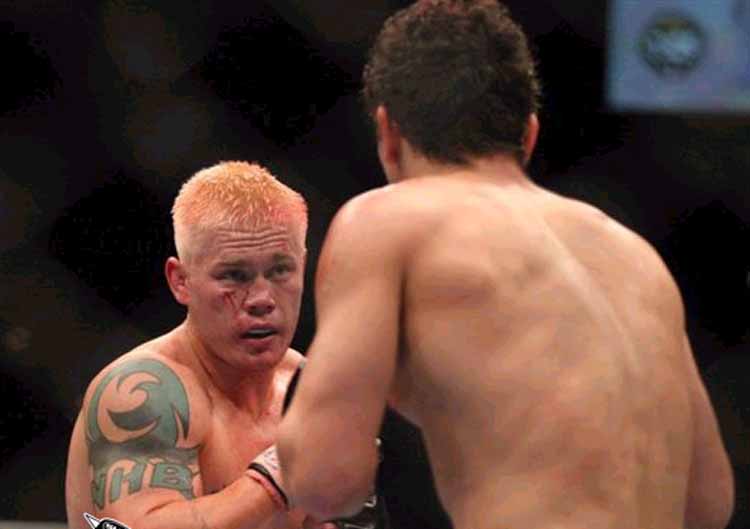

Man against Man.
Manhood against Manhood.
Is built into the Greek system and the Warrior Ethos.
It's expressed on the battlefield:
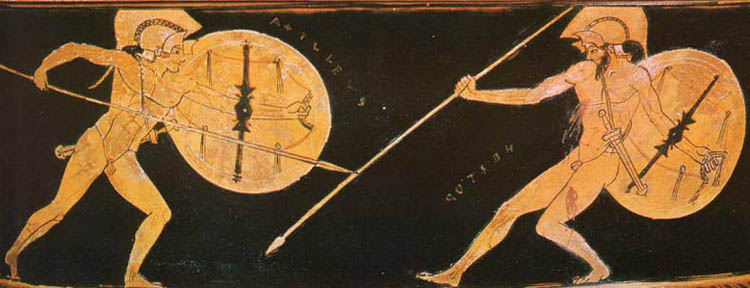
It's expressed in athletics:

It's expressed in manly love.
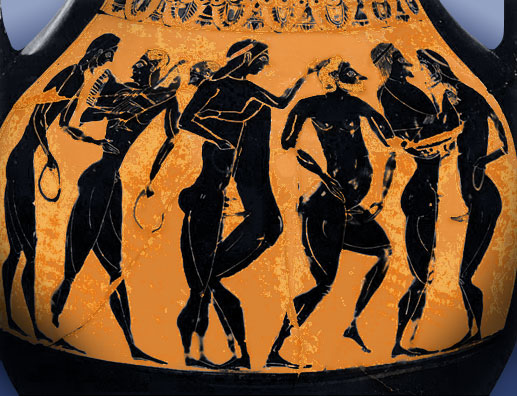
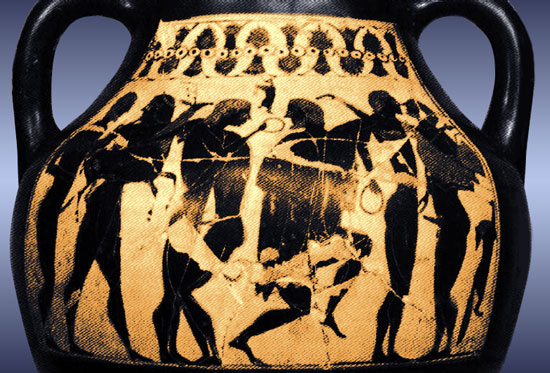
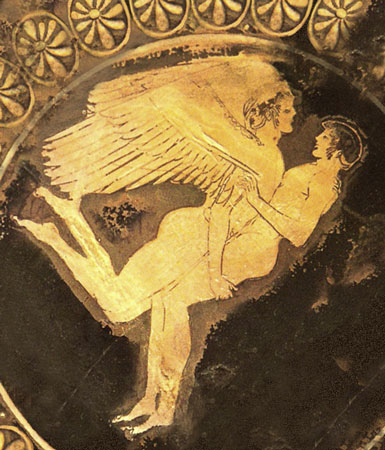
As it is for us:
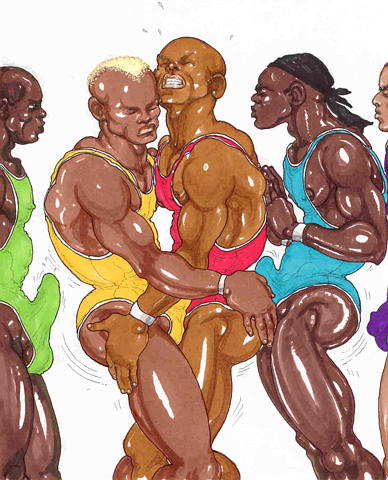
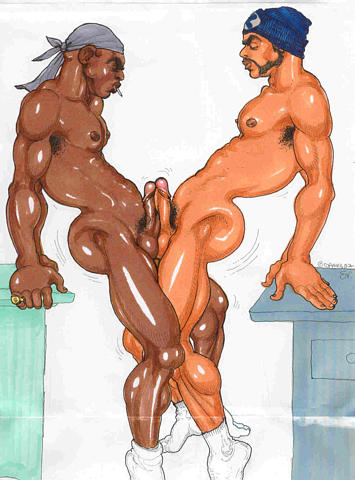
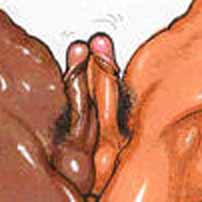
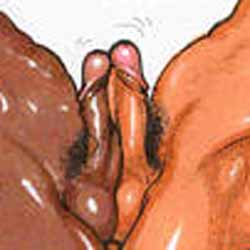
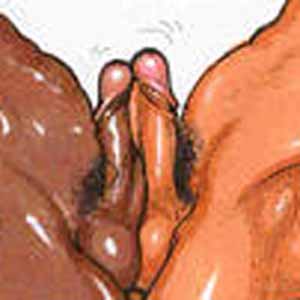
Once again:
Why does the contest -- the Fighting -- precede the courtship, the love-making, the Phallic Bond?
Because it is in the Fight that the Male displays his Virtus -- his Valour, his Manliness, his Moral Virtue.
That Virtue which makes him Worthy of Love.
And during the Fight he sweats -- "the sweat of war."
Where Men of Fighting Spirit gather -- that sweat is found.
As Statius says in Book I when Polynices and Tydeus first fight:
the dust
Is hot with men's raw sweat
"hot"
"hot with men's raw sweat"
Statius understands -- and his audience understands -- that such heat is both aggressive -- and affiliative.
That MEN live between Aggression and Attraction.
So: sweat is the sacrament of naked valour, the sacrament of glorious war, the sacrament of martial valour.
And Frot is a Manly and Martial act, rich in Valour; and a Sacrament, a statement and symbol of a holy and forever faithful Warrior bond.
Athletics, War, Manhood:
Naked athletics, Naked War, Naked Manhood -- all are bound together.
As are Virtue and Valour, courage and moral worth.
When, as has happened in our modern era, a society attempts to divorce Man from Manhood, that is to say, sexuality from genitality -- that society invites and invents disaster.
Analism is one such disaster.
Transgenderism is another.
In forthcoming posts, we'll look closely at the disasters which have come in their train.
The young runner, Parthenopaeus, stands in full naked glory before his Warrior peers at the Games:
His body shone, the whole joy of his limbs
Displayed, his splendid shoulders, chest as fine
As beardless cheeks, and valour plain to see.

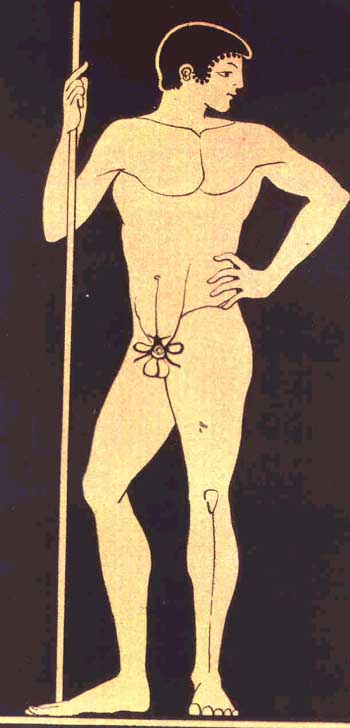

His valour plain to see.
In that one phrase, Statius sums up an entire worldview -- about Men, Masculinity, Manhood, Virtue, and Valour -- which our culture has almost entirely lost.
We're paying an enormous price for that loss.
All the dysfunction and dysphoria, all the pain and death, which we've noted on this site, stems ultimately from the divorcement of Manhood from Man.
There can be no question of that.
We here are committed to the restoration of MANHOOD to MAN.
And just as much as the Founding Fathers of our Republic swore their lives, their fortunes, and their sacred honor --
SO MUST WE.
So that someday, somewhere, Warriors will again stand among their peers, their equals, ready to celebrate the Sacraments of Sweat, Strength, and Martial Virtue, naked and proud, proud of their Manliness, proud of their Manhood, their Valour plain to see.
Bill Weintraub
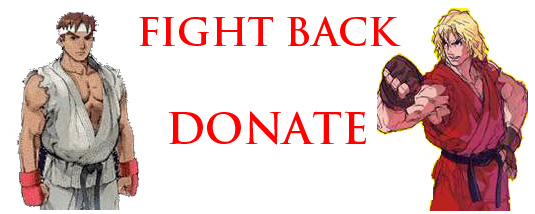
© All material Copyright 2007 by Bill Weintraub. All rights reserved.
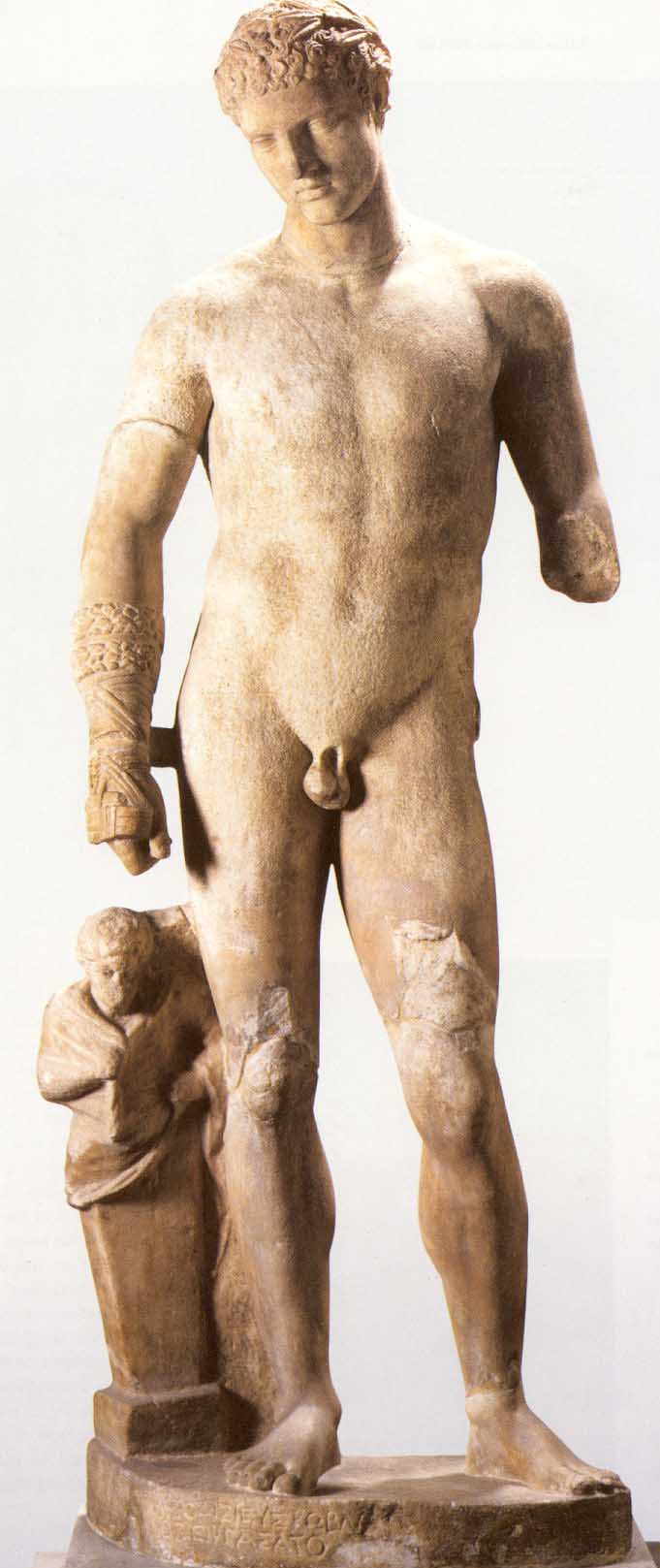
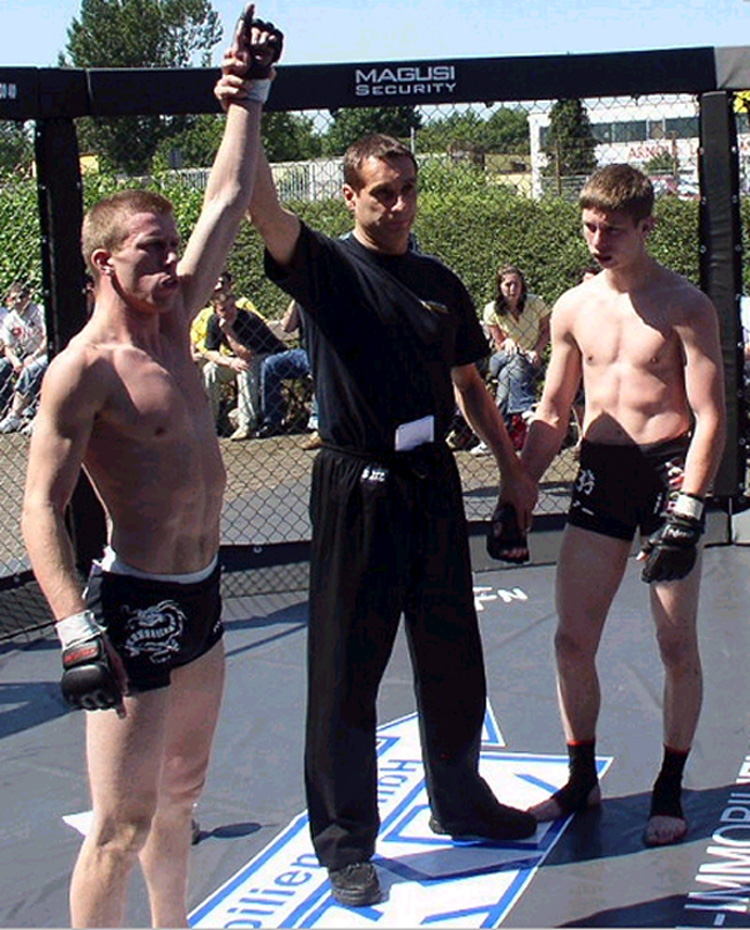
Re: his valour plain to see
5-10-2007
This is an EXCELLENT post.
The sport of submission fighting is growing like wildfire because of the web, even WITHOUT subsidies for stadiums. And fight sports are returning Maleness to the Male. That Natural Maleness includes man2man attraction.
One of the most important points that Bill makes is that the fighting/wrestling/boxing MUST precede the male attraction. This is why men congregated at the fight schools in Greek, Roman, Celtic, African cultures. It happens all over the World throughout History.
The willingness to face up and fight is what Naturally Masculine Males are attracted to; and it's this willingness to face up and fight which males use to attract Naturally Masculine Males to themselves...
Naturally Masculine Males have the understanding (built-in to their DNA) that getting fucked like a woman and dressing like women and acting like queers and screamers, emasculates males and makes the male less worthy of a warrior bond with another warrior.
It's why going to the fights is such a Masculine experience.
AND it's why the Gay Community dislikes fighting. The Gay Community dislikes complete and true Natural Masculine Maleness.
I wish I had understood that all when I was younger...
Re: his valour plain to see
5-14-2007
Thank you Naked Wrestler.
Naked Wrestler aka NW is the author of many posts and articles on this site, including aggression and the beauty of guys; and I strongly recommend his work.
NW:
One of the most important points that Bill makes is that the fighting/wrestling/boxing MUST precede the male attraction.
That's right, and I can't emphasize it enough.
And it's because of the fundamental role that aggression plays in the development and life of the male.
Aggression and Attraction are the male-male poles.
The Naturally Masculine Man flows from one to the other.
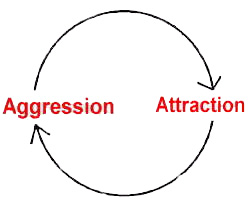
Male-Male Attraction is built in.
So is Male-Male Aggression.
But it has to be developed and nurtured and its discipline and rules taught within the male group.
Again, this is the "roughs and toughs of life" experienced in an all-male or homosocial community of peers which my foreign friend has referred to and which is so important in male development.
So the ability and above all Willingness to Fight is crucial.
Contest precedes Courtship.
Combat precedes Courtship.
That is the male way, the Way of the Warrior, because what the male is looking for in another male is a Warrior brother -- someone who can fight.
And who will fight at this side and at his back.
That's fundamental to being male.
And guys, I'm going to write more about this in a separate post, but as you know, I get a lot of emails from guys saying I'm lonely, please help me.
And I tell them they need to re-awaken their Masculinity.
But they don't want to do that.
Instead, they want me to magically find them a mate.
Can't be done.
Before they can find a mate they have to find themselves -- and that means they have to find their Masculinity.
Because that's what they are.
Men.
In a separate email, NW said to me
I think I'm really beginning to understand it [Virtus]. I've tried to get other guys to understand the importance of males being naked, at least in the showers. To be comfortable in their nudity with each other. It's not just the jacking off part that I sometimes do -- that's just for fun -- even though we do know that mutual jacking off has its absolute purpose with males.
There are so many so-called masculine dudes at the gym with their "worked out" bodies who think of themselves as SO masculine for being able to pull up their shirts. But they wouldn't dare drop their drawers and shower w/ the other "dudes" in the one-room shower room. This younger generation of males has become girly-like in their inhibition to exposing all their manhood.
Some of these guys even think of it as queer/bad to just go into the shower room. I think of these guys as incomplete males. A male is not completely male until he can stand completely naked with his fellow males.
What you wrote even reminds me of some guys who need to wear a towel around their waist walking to and from the shower room at the gym I go to--like some sort of long skirt. I think to myself: dude, what's with the dress? You have a ball sack and man penis; show it.
It's weird to me.
It gets back to the wearing of the singlet and the freedom these wrestlers have developed to present their packages to their opponents and to the people watching.
I really like what you wrote..
So NW says, "A male is not completely male until he can stand completely naked with his fellow males."
That's right.
That was the Greek view, and again it fits with our understanding of Natural Masculinity, which flows from the male's sense of himself as a Man, but which needs the male group -- the Warrior band with its Warrior bonds -- to be completely realized.
In the ancient world, the concept of VIRTUS -- Valour, moral virtue, courage, manhood, power, manliness, prowess, moral worth -- was understood to include the quality of being among your peers and facing your enemies NUDE.
In a pure and Manly state of nature.
They understood that.
That's why they worked out nude.
That's why they competed nude.
That's why they fought nude.
When we shame Manly nudity -- we shame Manliness.
When we shame Manhood -- we shame Manliness.
That's what happens.
The ancients were proud of their Manhood, proud of their Manliness, proud of their Valour.
Because their Valour was plain to see.
Thank you Naked Wrestler.
You're a true Warrior.
Bill Weintraub

© All material Copyright 2007 by Bill Weintraub. All rights reserved.
Re: his valour plain to see
4-9-2009
Hi Bill,
You quote from an E mail from NW in which he says how many guys cover up when they go to or from the shower, well some years ago I had a wrestling buddy and yes we did it naked, but before we did it for the first time he said (speaking of the wresting) "You have not got anything I have not got, I have not got anything you have not got, so there is no reason why we can't do it naked", it was done naked but still non sexual, and a masculine manly way.
Love
Brian
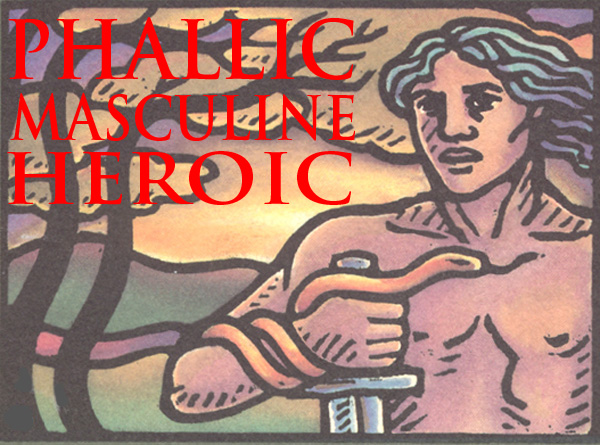



AND
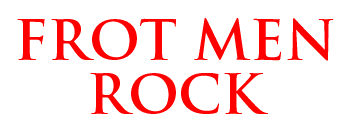
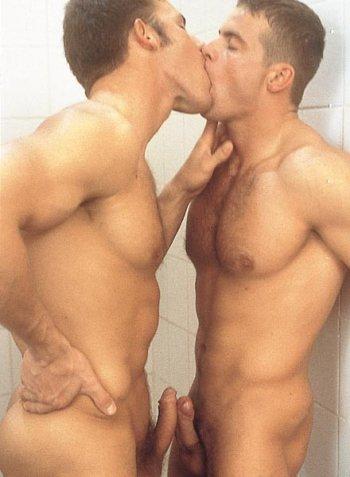
Warriors Speak is presented by The Man2Man Alliance, an organization of men into Frot
To learn more about Frot, ck out What's Hot About Frot
Or visit our FAQs page.

| Heroes Site Guide | Toward a New Concept of M2M | What Sex Is |In Search of an Heroic Friend | Masculinity and Spirit |
| Jocks and Cocks | Gilgamesh | The Greeks | Hoplites! | The Warrior Bond | Nude Combat | Phallic, Masculine, Heroic | Reading |
| Heroic Homosex Home | Cockrub Warriors Home | Heroes Home | Story of Bill and Brett Home | Frot Club Home |
| Definitions | FAQs | Join Us | Contact Us | Tell Your Story |

© All material on this site Copyright 2001 - 2010 by Bill Weintraub. All rights reserved.
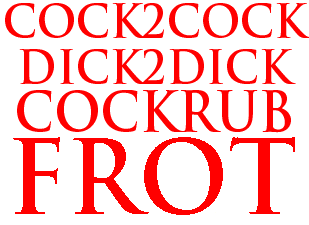

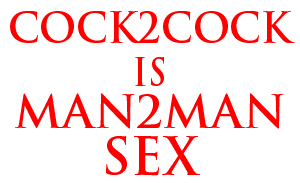


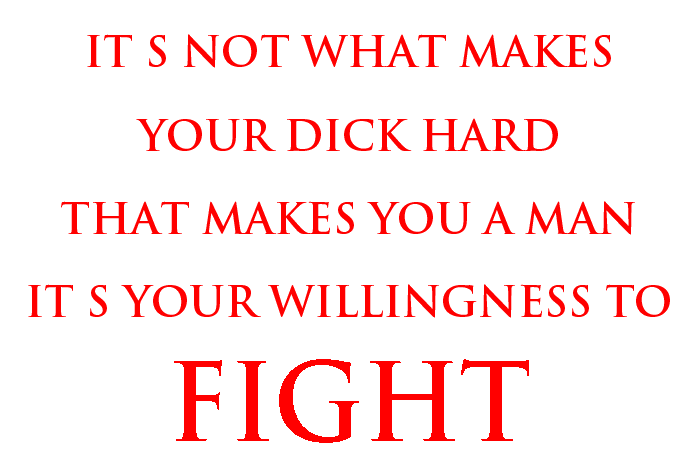
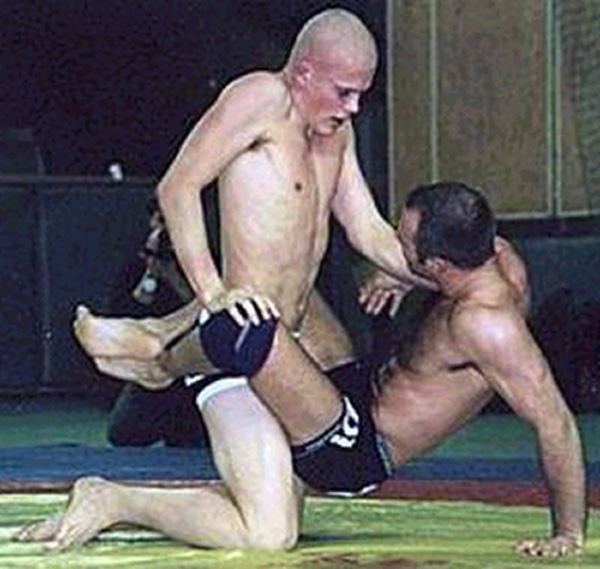
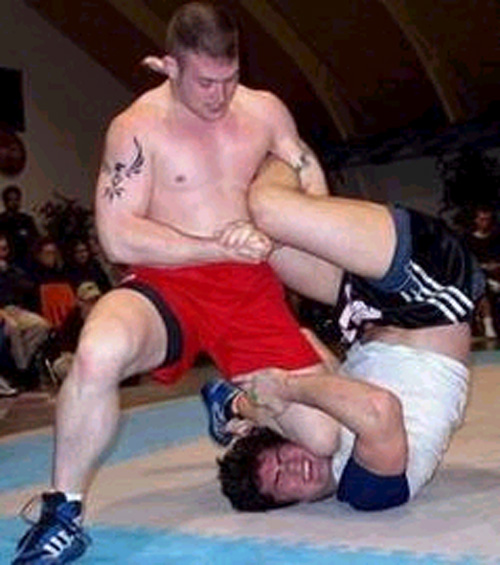
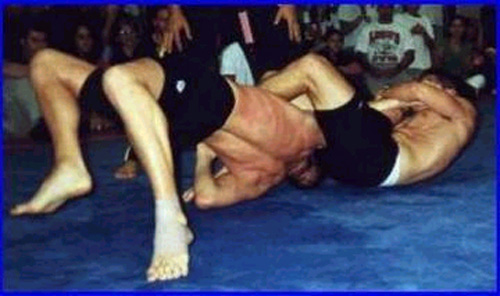
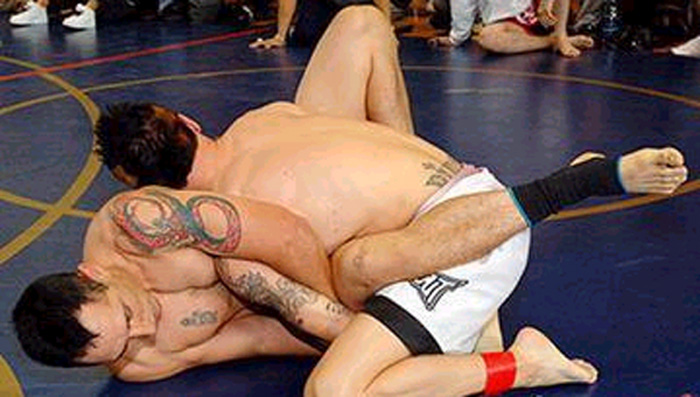
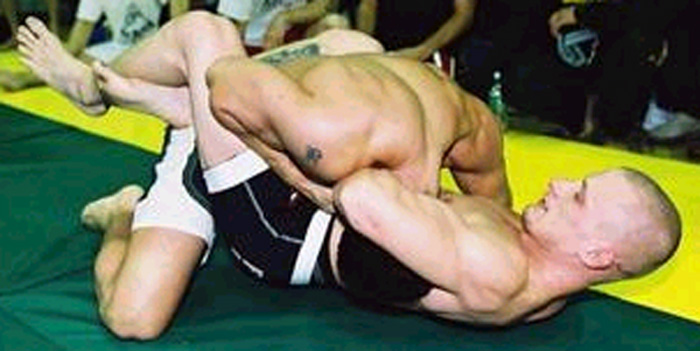
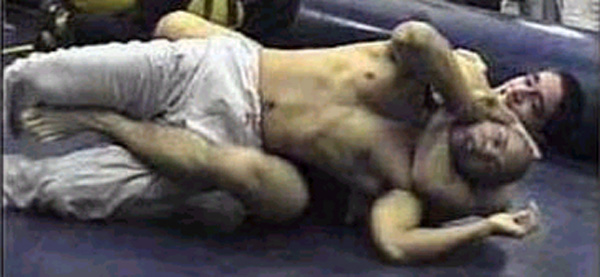
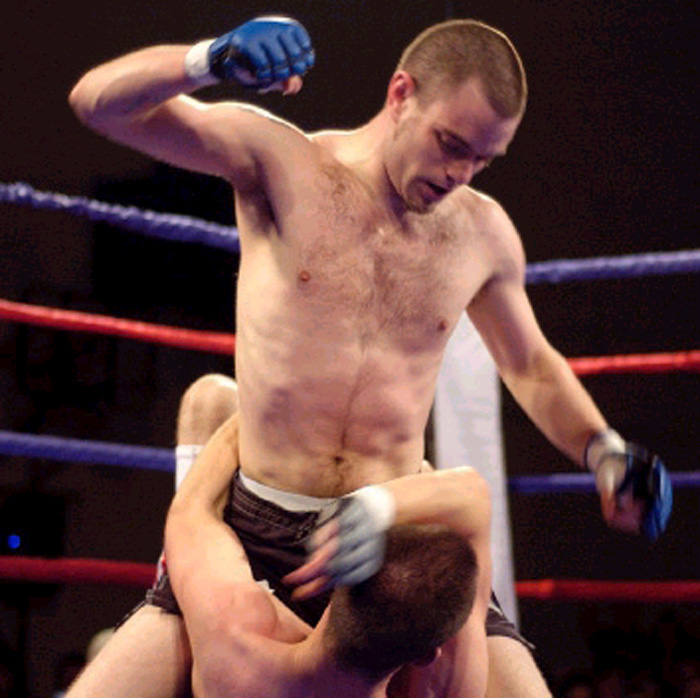
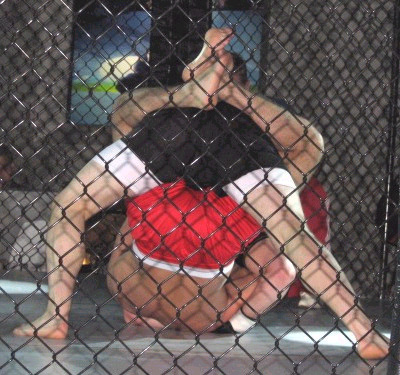
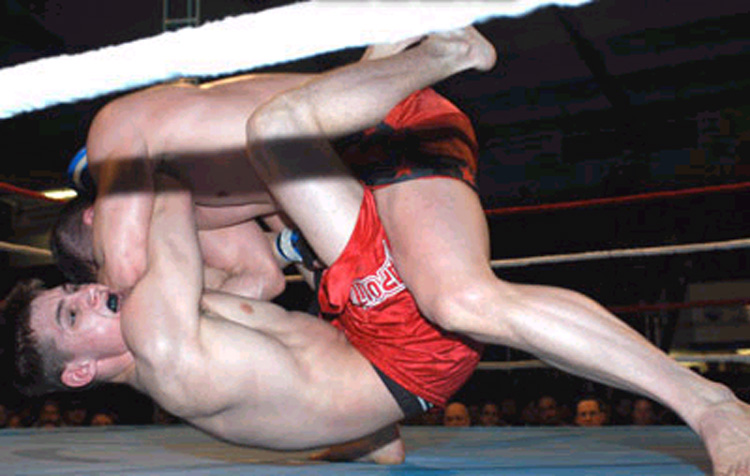
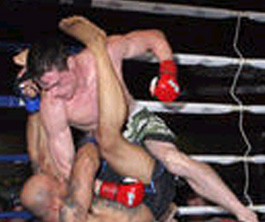
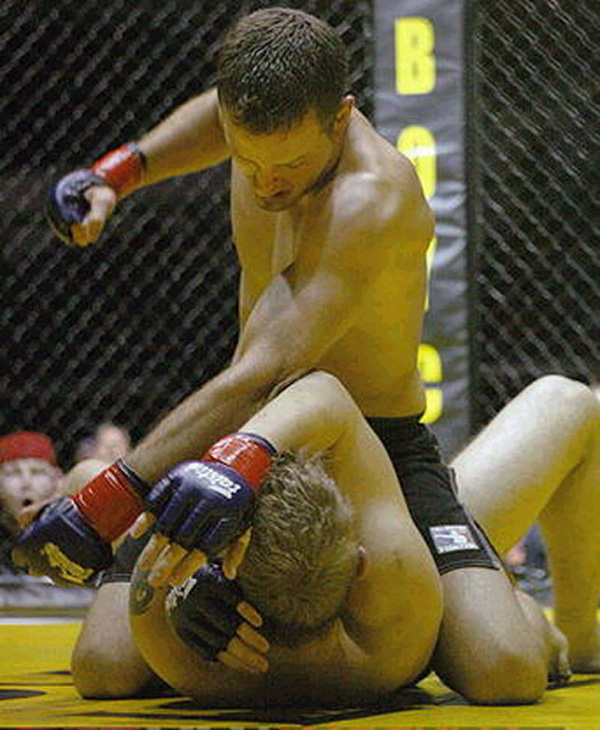
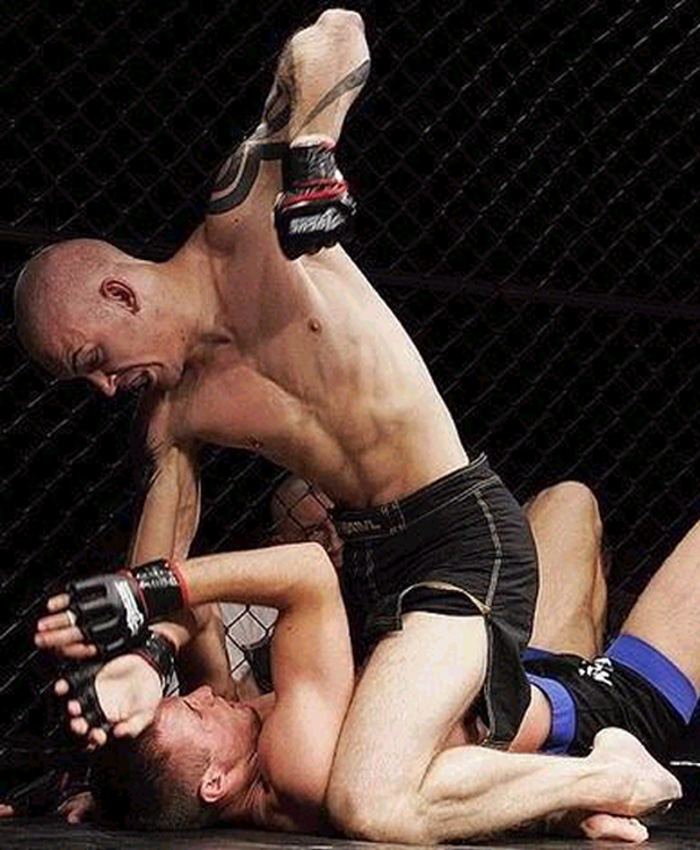
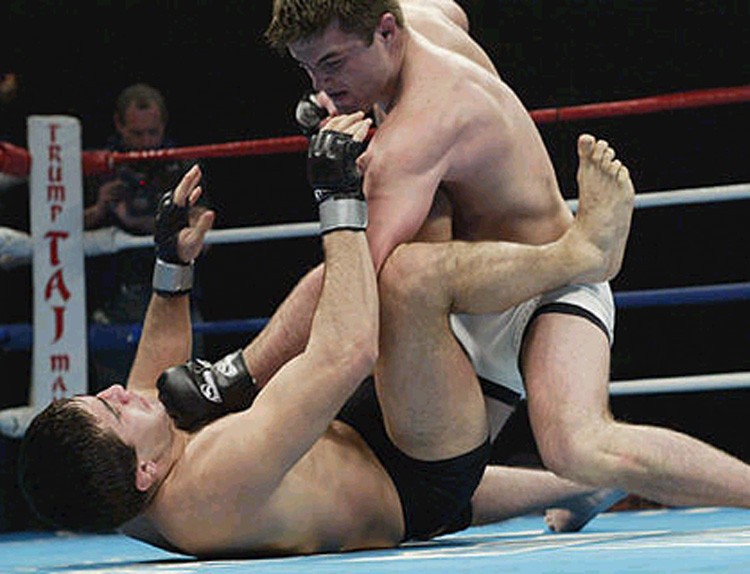
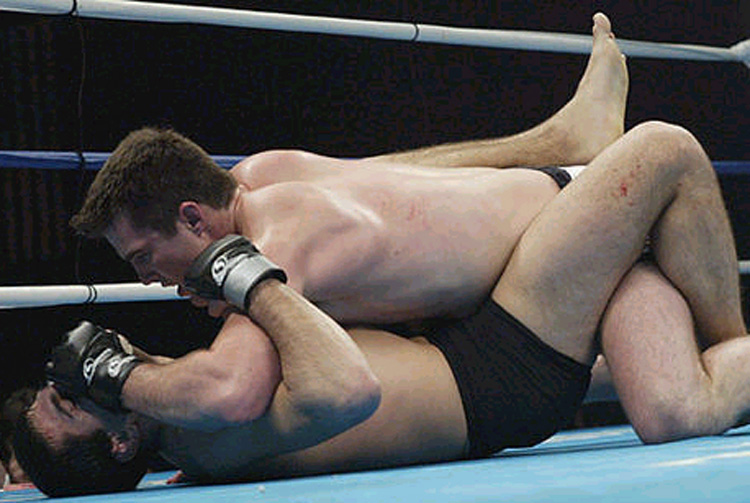
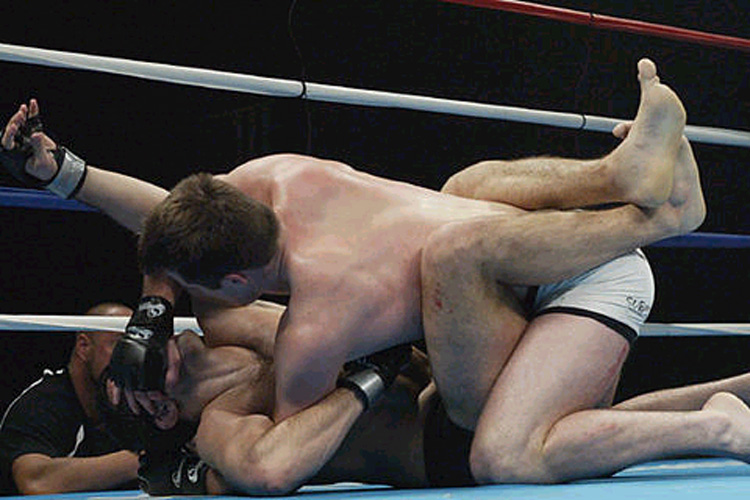
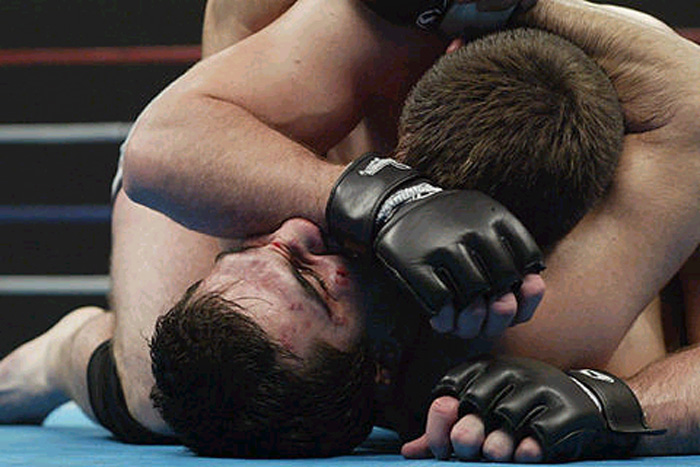

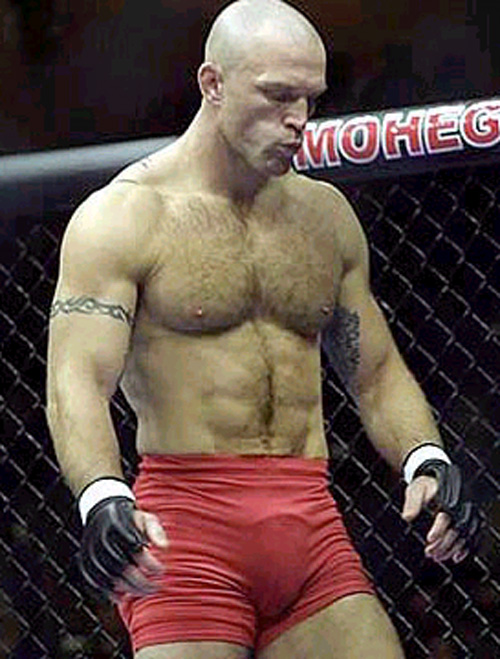


testis : one who gives evidence, witness, spectator / testicle
sacramentum : oath, sacraments, sacred rites
viriliter : manfully.


